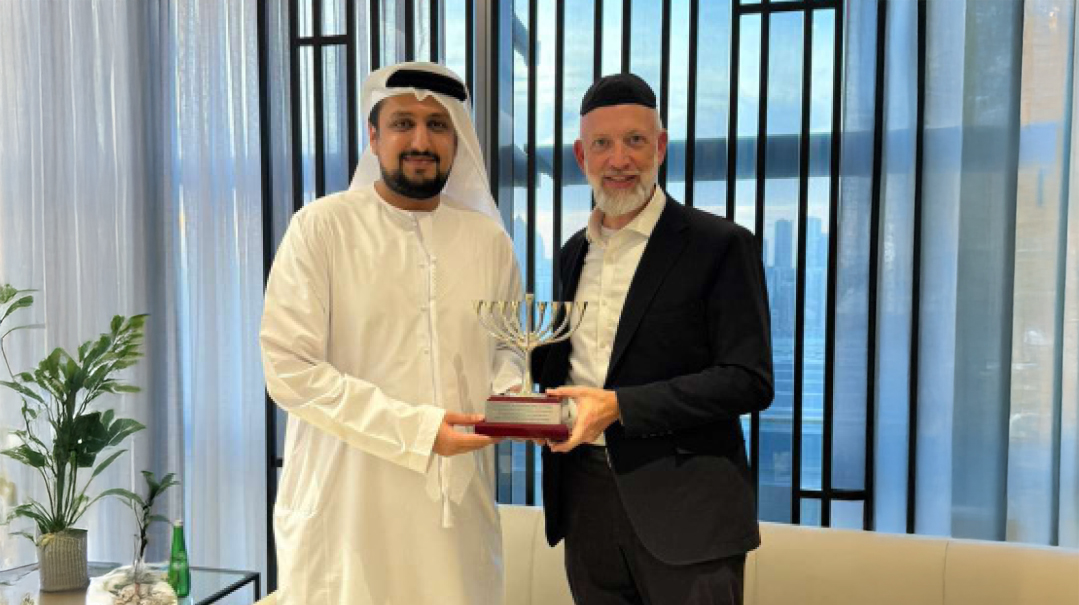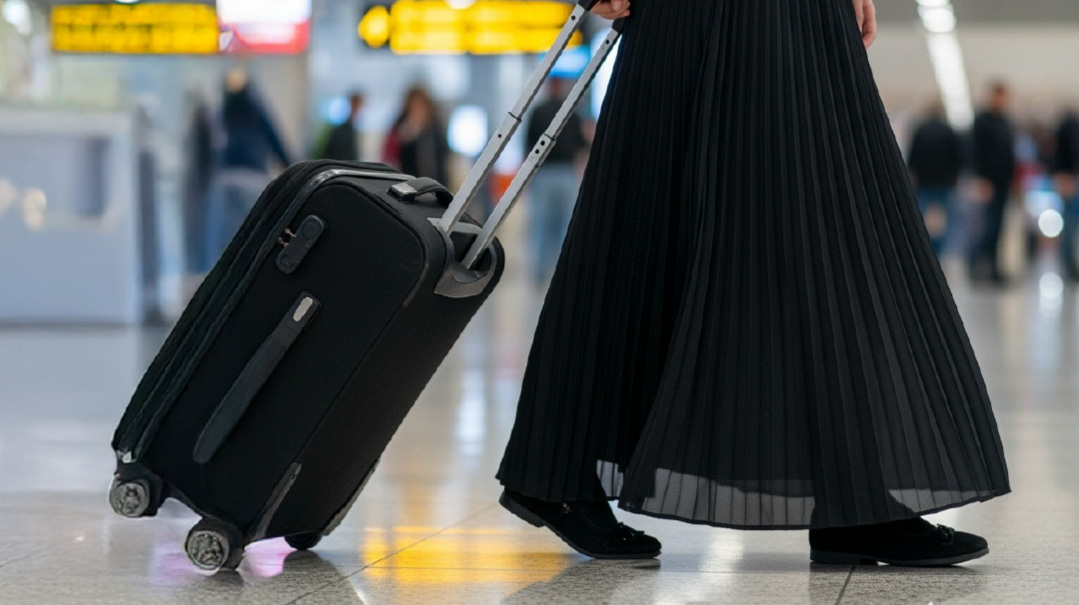The Way I See It

T
he voices of dissent rising against the Orthodox Union’s decision to publicly host United States Attorney General Jeff Sessions and present him with a plaque go beyond the expected Social Justice Warrior camp. Nathan Diament, executive director for Public Policy for the Orthodox Union, explains the reasoning behind the move.
The Argument
Even those who understand the need for America’s Jewish population to work with whoever is in power questioned the timing and messaging of this plaque. At a time when Sessions was being attacked, even within his own party, for separating children from their parents, perhaps Jewish organizations should have kept their distance. By engraving the plaque with words of Torah, critics maintain, the OU conveyed a certain sense to the onlooker that the Torah itself sanctions the inhumane practices the attorney general is enacting.
In recent weeks, the United States’ government’s border enforcement policies have been the subject of considerable controversy and debate. In seeking to effectively police the borders and restrict illegal immigration, human trafficking, and smuggling, the Trump Administration has implemented a “zero tolerance” policy at the US-Mexico border, including steps that separate children from their parents.
As an Orthodox Jewish organization whose values are anchored in those of the Torah, we are deeply concerned about any steps taken that affect families and the parent/child relationship. The family is viewed by the Torah as a sacred institution and a fundamental building block of society. The Orthodox Union has consistently advocated for an array of public policies designed to strengthen and protect the family unit. Thus, we believe that immigration, asylum, and border security policies must also be fashioned and implemented in a manner that takes all steps possible to keep parents and children united.
We therefore find the current enforcement practices at the US-Mexico border to be unacceptable and at odds with our values and the historical experience of our people. The challenge for our organization is not our policy position, but how best to advance that position.
On this issue, as with all others, we undertake our efforts — through our OU Advocacy Center — in the manner we assess will be most impactful. The government’s border policies are mostly shaped and enforced by the attorney general and we had an opportunity to engage with him directly last week.
Each year, the Orthodox Union Leadership Mission to Washington brings our lay and rabbinic leaders to the capital city for high-level advocacy meetings. (This year, we met at the White House with US Ambassador to Israel David Friedman, Special Representative Jason Greenblatt, and Domestic Policy Director Andrew Bremberg; we also met on Capitol Hill with Senators Schumer, Cardin, Cruz, and a host of other senators and members of the House.)
This year, we had invited Attorney General Jeff Sessions to address the Leadership Mission on the important topic of religious liberty and the work the Justice Department is doing to protect these legal rights so crucial for the frum community’s ability to thrive in America. The Justice Department is doing wonderful work on this front for which we are deeply grateful.
Leaders of the Orthodox Union deferred expressing our concerns about the family separation policies in public in order to take advantage of the attorney general’s participation in our event. We did so in a private meeting prior to his address to our delegation. Attorney General Sessions heard the concerns and questions of our community regarding these policies and offered his perspective and responses. Importantly, the attorney general committed to further dialogue with the OU on this important topic.
At the conclusion of our session with the attorney general, OU president Moishe Bane presented him with a token of appreciation for his participation, as was done for everyone who spoke at the DC mission that afternoon, and exhorted him with the imperative found in the verse, “Tzedek, tzedek tirdof.” Mr. Bane noted the commentary by the Peshis’cha Rav that the Torah repeats the word tzedek to direct us that the goal of justice must be pursued with means that are themselves just, with the hope that Attorney General Sessions would apply those values to the border security policies.
Our hosting the attorney general has generated controversy within our community. Some people feel that it was tantamount to an endorsement of him or his controversial policies. We never saw it that way.
Over the course of decades, leaders of the Orthodox Union have met with political officials across the spectrum for the purpose of advancing our community’s values and interests. This is one of the essential roles our organization plays as a representative body of the frum community.
When OU leaders met with President George H.W. Bush, that was not an endorsement of his position to deny loan guarantees to Israel; when we met with President George W. Bush, that was not an endorsement of his repeated refusal to relocate the US embassy in Israel to Jerusalem; and when we met with President Obama, that was not an endorsement of his nuclear deal with Iran. If we only met with officials with whom we agree on everything, we would have no one to meet with in Washington or anywhere else.
Of course, we understand why some of our constituents may be upset with our engagement with Mr. Sessions because of how the border policies are being implemented. But if they want to see those policies change, engagement with the policy makers is indispensable.
The Orthodox Union remains committed to effective advocacy work on behalf of our community. We pray that HaKadosh Baruch Hu grant us the insight and ability to engage in it properly. (Originally featured in Mishpacha, Issue 715)
Oops! We could not locate your form.













